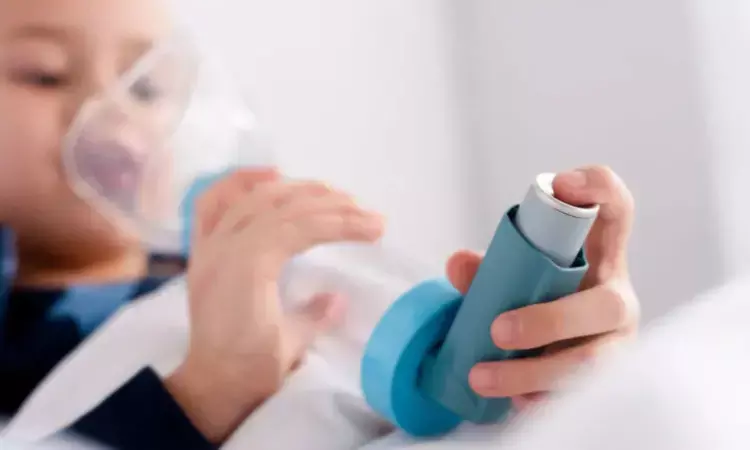- Home
- Medical news & Guidelines
- Anesthesiology
- Cardiology and CTVS
- Critical Care
- Dentistry
- Dermatology
- Diabetes and Endocrinology
- ENT
- Gastroenterology
- Medicine
- Nephrology
- Neurology
- Obstretics-Gynaecology
- Oncology
- Ophthalmology
- Orthopaedics
- Pediatrics-Neonatology
- Psychiatry
- Pulmonology
- Radiology
- Surgery
- Urology
- Laboratory Medicine
- Diet
- Nursing
- Paramedical
- Physiotherapy
- Health news
- Fact Check
- Bone Health Fact Check
- Brain Health Fact Check
- Cancer Related Fact Check
- Child Care Fact Check
- Dental and oral health fact check
- Diabetes and metabolic health fact check
- Diet and Nutrition Fact Check
- Eye and ENT Care Fact Check
- Fitness fact check
- Gut health fact check
- Heart health fact check
- Kidney health fact check
- Medical education fact check
- Men's health fact check
- Respiratory fact check
- Skin and hair care fact check
- Vaccine and Immunization fact check
- Women's health fact check
- AYUSH
- State News
- Andaman and Nicobar Islands
- Andhra Pradesh
- Arunachal Pradesh
- Assam
- Bihar
- Chandigarh
- Chattisgarh
- Dadra and Nagar Haveli
- Daman and Diu
- Delhi
- Goa
- Gujarat
- Haryana
- Himachal Pradesh
- Jammu & Kashmir
- Jharkhand
- Karnataka
- Kerala
- Ladakh
- Lakshadweep
- Madhya Pradesh
- Maharashtra
- Manipur
- Meghalaya
- Mizoram
- Nagaland
- Odisha
- Puducherry
- Punjab
- Rajasthan
- Sikkim
- Tamil Nadu
- Telangana
- Tripura
- Uttar Pradesh
- Uttrakhand
- West Bengal
- Medical Education
- Industry
ICS use safe in kids with asthma, no evidence of suppression of Hypothalamic-Pituitary-Adrenal Axis

Jodhpur, Rajasthan: Inhaled corticosteroids are considered the most effective treatment for children with persistent asthma. However, adverse effects of ICS on the Hypothalamic Pituitary Adrenal axis, growth and bone metabolism are a concern.
A recent study published in the Indian Journal of Pediatrics has suggested inhaled corticosteroids (ICS) to be a safe drug in children for asthma treatment, even for the long term.
The study showed that a few children had low post-adreno-corticotropic hormone (ACTH) stimulation cortisol value, and none had clinical evidence of hypothalamic-pituitary-adrenal (HPA) axis suppression.
The study was conducted by Prawin Kumar, All India Institute of Medical Sciences (AIIMA), Jodhpur, Rajasthan, India, and colleagues to evaluate the effect of the long-term use of inhaled corticosteroids on the hypothalamic-pituitary-adrenal axis.
The study included children aged 5 to 18 years with asthma diagnosis and n ICS therapy for ≥6 months. Firstly, the screening with fasting was done at 8 AM; cortisol level was measured; <15 mcg/dl value was considered low. In the second step, children with low fasting cortisol were subjected to ACTH stimulation. Post-ACTH stimulation, cortisol level <18 mcg/dl was considered to have HPA axis suppression.
In the study, the researchers enrolled 78 children (males 55, 70.5%) diagnosed with asthma, with a median age of 11.5 years. The median duration of ICS use was 12 months.
The study led to the following findings:
- The median value of post-ACTH stimulation cortisol level was 22.5 mcg/dl, and a value <18 mcg/dl was observed in 4 children.
- There was statistically no significant correlation between low post-ACTH stimulation cortisol level with ICS dose and asthma control.
- None of the children had clinical features of adrenal insufficiency.
"Our results showed that a few children had low post-ACTH stimulation cortisol values; however, none had clinical evidence of HPA axis clinical suppression," the researchers wrote. "Therefore, even for long-term use, ICS is a safe drug in children for treating asthma."
Reference:
Hema, L.S., Kumar, P., Goyal, J.P. et al. Effect of Long-term Inhaled Corticosteroids on the Hypothalamic-Pituitary-Adrenal Axis in Children with Asthma. Indian J Pediatr (2023). https://doi.org/10.1007/s12098-023-04706-6
Dr Kamal Kant Kohli-MBBS, DTCD- a chest specialist with more than 30 years of practice and a flair for writing clinical articles, Dr Kamal Kant Kohli joined Medical Dialogues as a Chief Editor of Medical News. Besides writing articles, as an editor, he proofreads and verifies all the medical content published on Medical Dialogues including those coming from journals, studies,medical conferences,guidelines etc. Email: drkohli@medicaldialogues.in. Contact no. 011-43720751


